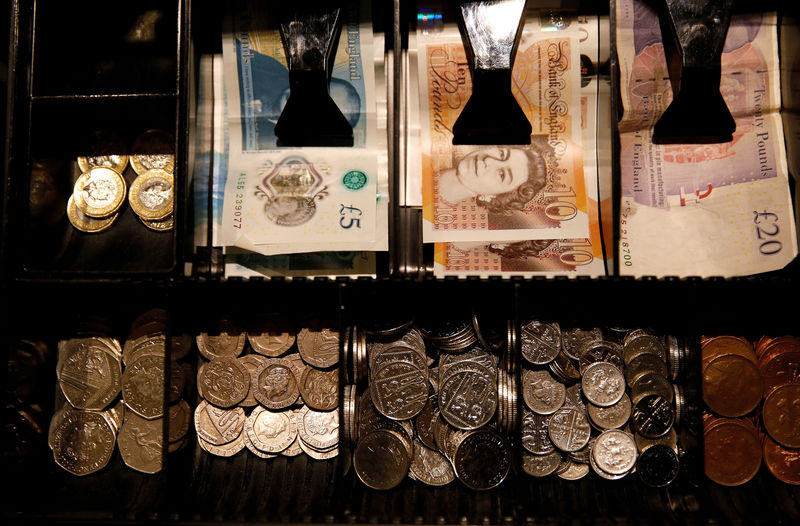By Ritvik Carvalho and Tommy Wilkes
LONDON (Reuters) - Foreign exchange markets and British gamblers share an increasingly similar view on the prospect for a no-deal Brexit, with the relationship between the two notably close since Boris Johnson became prime minister.
The pound has tumbled 4% to nearly 93 pence per euro (EURGBP=D3) from 89 pence in late July when Johnson came into office and investors scrambled to price in his pledge to take Britain out of the European Union at the end of October with or without a withdrawal deal.
Economists generally view a no-deal Brexit as an outcome that will hit the British economy hard, and sterling traders expect the pound to plunge even further should such an outcome materialize.
The implied probability of a no-deal Brexit by end-2019 based on odds quoted by bookies Betfair has risen in tandem: to 40% today from under 30% in July.
(GRAPHIC - Betting odds mirror sterling weakness in no-deal Brexit bets: https://tmsnrt.rs/2N97Zea)
"We observed a similar phenomenon in the run-up to other binary event risks in the UK – expectations for both the Scottish independence referendum and the 2016 EU referendum completely dominated GBP direction in the final weeks," Adam Cole, chief currency strategist at RBC Capital Markets, wrote in a note to clients.
Betting on political events in Britain is popular. Some analysts say it can prove better at forecasting than traditional polling data and financial market moves after many investors were wrongfooted by the Brexit vote in 2016.

Cole said betting odds were helpful proxies but there were limits to their usefulness - ahead of the 2016 referendum there was anecdotal evidence "that the implied probability of a vote to leave was being manipulated and arbitraged against GBP".